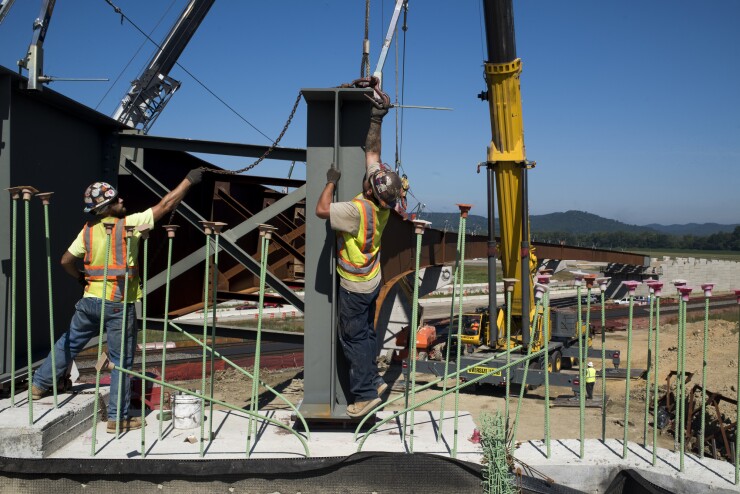Hours after President Trump
Christopher Jumper, director at Assured Guaranty, said during The Bond Buyer's National Outlook 2018 Conference Wednesday morning that many hurdles stand in the way of Trump getting infrastructure legislation, mainly the looming midterm elections where Democrats are chomping at the bit to retake control of Congress. Jumper also noted that the recently enacted tax overhaul legislation that caps federal deductions on state and local taxes could add another political barrier to gaining voter support for large-scale infrastructure spending.

“There are some headwinds that are facing the infrastructure plan,” said Jumper during the conference at the Metropolitan Club in Manhattan. “It’s going to be a bit of a challenge.”
Trump provided no funding solutions in his State of the Union address Monday, but a draft outline of the administration’s plan leaked on Jan. 22 suggested the White House is seeking to fund $200 billion over 10 years. Jumper said this funding support if far less than the direct investment Democrats are seeking for infrastructure and adds another barrier to a sending legislation to the Oval Office in 2018. He said some positives from the six-page document include reducing the permitting process, giving more control to municipalities for revenue generation and holding federal agencies overseeing project more accountable.
Ted Chapman, senior director in the U.S. Public Infrastructure Group at S&P Global Ratings, also said political infighting casts plenty of doubt over whether bipartisan passage of an infrastructure bill is feasible. He added that uncertainty surrounding the future of Community Development Block Grants and funding sources for transportation outlined in Trump’s budget proposal last year also raise the question of whether the country will ultimately be getting an overall infrastructure spending boost.

“Are we really increasing total funding or are we just sort of shuffling things around?” said Chapman. “The devil is in the details.”
Joseph Branca, chief financial officer at the Long Island Power Authority, said the utility is not expecting any significant funding support from Washington and is forging with ahead with ambitious capital planning through other financing strategies. Branca said LIPA funded recent infrastructure projects through a combination of revenue bonds and its capital budget. He explained that with renewable energy projects, developers get financing away from LIPA with the then utility entering into long-term contracts to buy their output.
“Relying on the federal government is not a strategy,” said Branca, who is tackling green energy initiatives as part of a mandate from New York Gov. Andrew Cuomo to have half of the state’s electricity comprised of renewables by 2030. “It’s better for us all to create our own ways of financing our own infrastructure.” `





